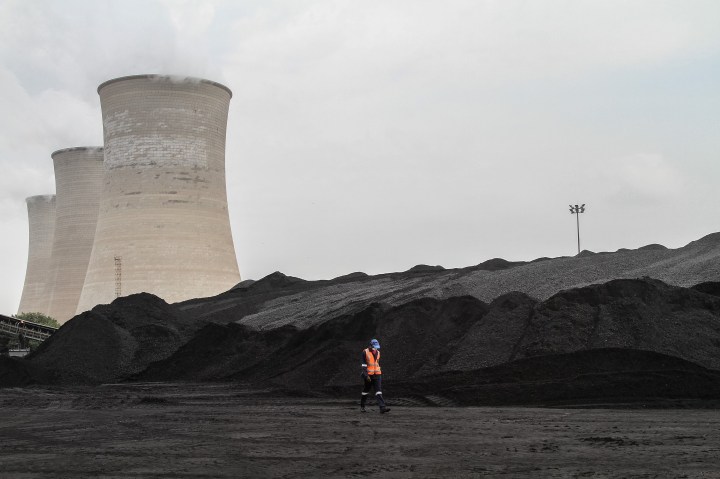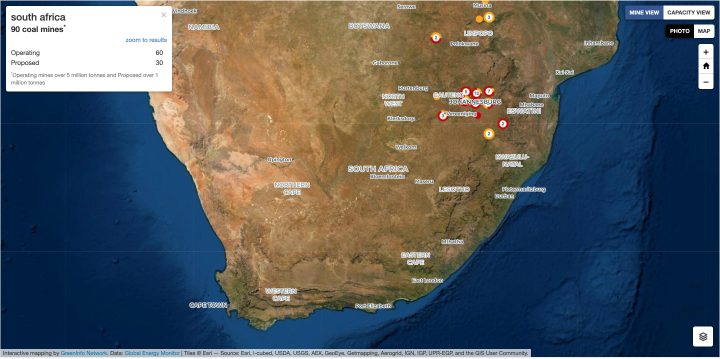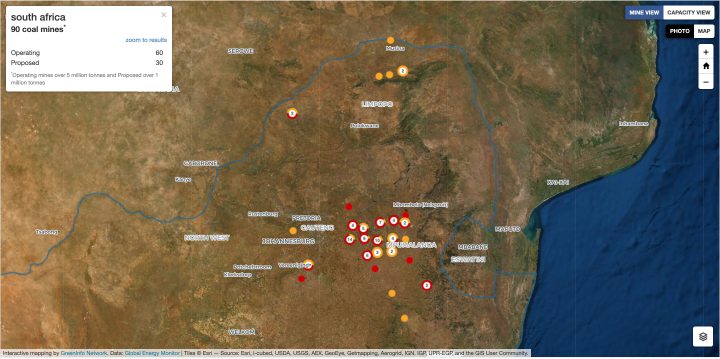CLIMATE ACTION
Big COP26 coalition commits to phasing out coal

It seems the end of coal is in sight — more than 20 countries at COP26 have committed to accelerating a shift to cleaner energy. South Africa has come out on top of just transition funding, with the country securing promises from two coalitions.
A 190-strong coalition of 23 countries and some institutions has committed to an end to coal-based power, the single biggest source of global carbon dioxide emissions. The announcement was made in Glasgow, Scotland at the ongoing COP26 climate action negotiations.
The commitments also include accelerating the move to clean energy and specifying how to phase out coal power in the 2030s for developed nations, and by the 2040s for developing and less developed countries.
Following the Paris Agreement, the rate of planned new coal plants has declined by 76%, resulting in the cancellation of more than 1,000GW of new coal plants.
Carrying out these commitments could see countries shift more than $15-billion a year towards renewable energy. The International Energy Agency has previously shown that public and private funding investments into coal should reach about $4-trillion by 2030. More than $20-billion to support the global coal-to-clean-power transition has now been announced at COP26.
“The signatories of today’s statement are doing what’s most logical in a climate emergency: stop adding fuel to the fire and shift dirty finance to climate action. Only this way can we avoid the worst climate crisis scenarios,” said Laurie van der Burg, global public finance campaigns co-manager at Oil Change International.
“We need to see much more of this to help deliver and exceed climate finance promises and support real solutions that meet community needs — particularly in the global south. Other countries and institutions must follow suit.”
The announcement comes as top coal public financer China, with Japan and Korea, made a commitment to end international finance for coal generation. But Chinese President Xi Jinping has been notably absent from the negotiations.
With China being the biggest emitter in the world, some fear a physical absence (Xi has attended some events virtually) could spell little to no action from the country.
South Africa, India, Indonesia and the Philippines also announced a partnership with the African Development Bank’s Climate Investment Fund to accelerate towards a just transition with the support of a $2-billion facility.
The announcements came shortly after a partnership launched between the UK, US, European Union, France and Germany. The partnership will enable South Africa to achieve its Nationally Determined Contributions (NDCs) targets by funding the country’s just transition to cleaner energy with R131-billion, which includes concessional loans and grants.
South Africa, the world’s 14th largest emitter, has 90 mines in total, about 60 operating coal mines and 30 proposed ones, which are partly responsible for the country’s 80% coal dependence. All the mines are located in the northern parts of the country, causing a concentration of dirty coal smog, a hazard to the environment and the health of surrounding communities.

South Africa has a total of 90 coal mines. (Photo: global Energy Monitor)

All of South Africa’s coal mines are concentrated in the north of the country. (Photo: Global Energy Monitor)
A report leaked by Reuters showed that more than 5,000 South Africans die annually from the effects of pollution in the Coal Belt, with many children in the region suffering from persistent asthma.
President Cyril Ramaphosa, who was not in Glasgow because of SA’s municipal elections, sent a message to the energy session. He said an energy transition was integral to reducing emissions and that communities and workers ought not to be left behind in this development.
“A just transition requires finance and support from wealthier nations to enable low- and medium-income countries to protect employment and to promote development,” Ramaphosa said.
“Achieving these targets will require the transformation of our energy system at an unprecedented speed and scale. This will include the decommissioning, the repowering and the repurposing of coal-fired power stations and the roll-out of renewable energy.”
On Wednesday, the Development Bank of Southern Africa (DBSA) announced that it would no longer fund any fossil fuel projects in an effort to achieve net-zero targets in line with South Africa’s NDCs. The bank also said it would provide finance to meet net-zero emissions.
The DBSA has been instrumental in funding one of the leading renewable energy projects on the continent through South Africa’s Renewable Energy Independent Power Producers Programme, which has seen R200-billion in investments and 50,000 jobs created.
The bank plays a pivotal role in providing the necessary infrastructure for regional countries to attract private and public financing for projects such as renewable energy as countries seek to achieve their NDCs, which aim to maintain a global average temperature not exceeding 1.5°C, in line with the Paris Agreement.
The commitments at COP26 are a step in the right direction in ensuring that the planet doesn’t surpass the 1.5°C threshold. However, previous COPs have been criticised for being talk-shops that yielded very few results. With the Paris rulebook — a tool to ensure implementation — being a key talking point at the negotiations, the commitments could become living promises. DM/OBP
[hearken id=”daily-maverick/8821″]
“A just transition requires finance and support from wealthier nations to enable low- and medium-income countries to protect employment and to promote development,” Ramaphosa said.
“Achieving these targets will require the transformation of our energy system at an unprecedented speed and scale. This will include the decommissioning, the repowering and the repurposing of coal-fired power stations and the roll-out of renewable energy.”
On Wednesday, the Development Bank of Southern Africa (DBSA) announced that it would no longer fund any fossil fuel projects in an effort to achieve net-zero targets in line with South Africa’s NDCs. The bank also said it would provide finance to meet net-zero emissions.
The DBSA has been instrumental in funding one of the leading renewable energy projects on the continent through South Africa’s Renewable Energy Independent Power Producers Programme, which has seen R200-billion in investments and 50,000 jobs created.
The bank plays a pivotal role in providing the necessary infrastructure for regional countries to attract private and public financing for projects such as renewable energy as countries seek to achieve their NDCs, which aim to maintain a global average temperature not exceeding 1.5°C, in line with the Paris Agreement.
The commitments at COP26 are a step in the right direction in ensuring that the planet doesn’t surpass the 1.5°C threshold. However, previous COPs have been criticised for being talk-shops that yielded very few results. With the Paris rulebook — a tool to ensure implementation — being a key talking point at the negotiations, the commitments could become living promises. DM/OBP
“A just transition requires finance and support from wealthier nations to enable low- and medium-income countries to protect employment and to promote development,” Ramaphosa said.
“Achieving these targets will require the transformation of our energy system at an unprecedented speed and scale. This will include the decommissioning, the repowering and the repurposing of coal-fired power stations and the roll-out of renewable energy.”
On Wednesday, the Development Bank of Southern Africa (DBSA) announced that it would no longer fund any fossil fuel projects in an effort to achieve net-zero targets in line with South Africa’s NDCs. The bank also said it would provide finance to meet net-zero emissions.
The DBSA has been instrumental in funding one of the leading renewable energy projects on the continent through South Africa’s Renewable Energy Independent Power Producers Programme, which has seen R200-billion in investments and 50,000 jobs created.
The bank plays a pivotal role in providing the necessary infrastructure for regional countries to attract private and public financing for projects such as renewable energy as countries seek to achieve their NDCs, which aim to maintain a global average temperature not exceeding 1.5°C, in line with the Paris Agreement.
The commitments at COP26 are a step in the right direction in ensuring that the planet doesn’t surpass the 1.5°C threshold. However, previous COPs have been criticised for being talk-shops that yielded very few results. With the Paris rulebook — a tool to ensure implementation — being a key talking point at the negotiations, the commitments could become living promises. DM/OBP
Comments - Please login in order to comment.
Top Reads This Hour
TOP READS IN SECTION
Daily Maverick © All rights reserved



















 Become an Insider
Become an Insider
A step in the right direction at last but we ought to be running and we’re not even crawling towards Zero emissions.
Someone please tell Gwede that the rest of the world does not buy his “clean coal” agenda.